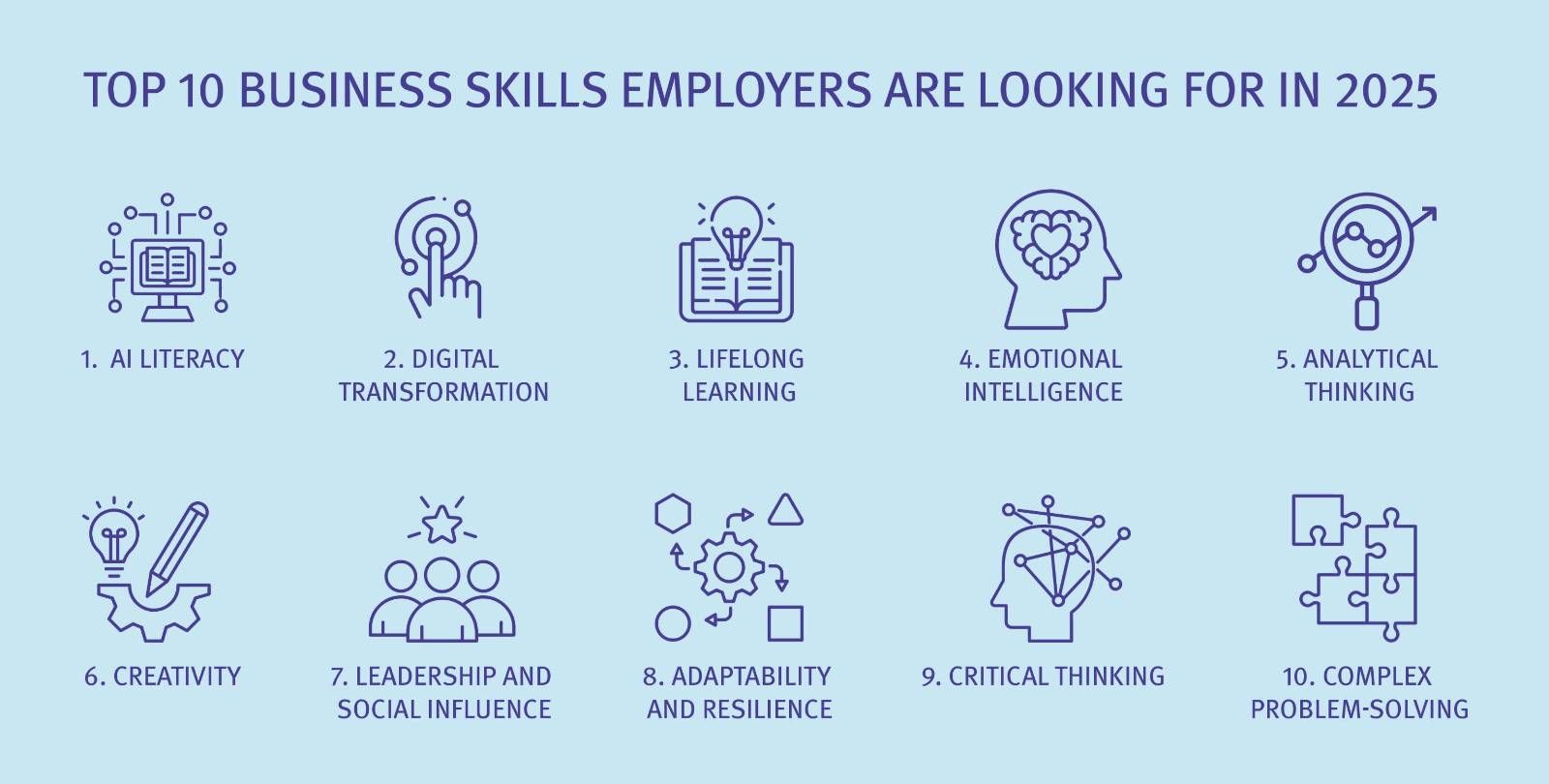

The world of work is constantly evolving, and employers are increasingly valuing soft skills alongside technical abilities. Let’s learn more about this topic below with Pacman as we explore the essential soft skills that will be in high demand by 2025.
As we approach 2025, the professional landscape is undergoing a significant transformation. With rapid technological advancements and shifting work paradigms, employers are placing a greater emphasis on soft skills that complement technical expertise. These interpersonal and intrapersonal abilities are becoming crucial for success in the modern workplace, where adaptability and effective communication are paramount.
Soft skills are the non-technical abilities that enable individuals to interact effectively with others, manage their emotions, and navigate complex social situations. Unlike hard skills, which are specific to a particular job or industry, soft skills are transferable across various roles and sectors. They are the intangible qualities that make a candidate stand out and contribute to a positive work environment.
In the coming years, as artificial intelligence and automation continue to reshape job roles, the human touch provided by soft skills will become even more valuable. Employers are recognizing that while technical skills can be taught and developed, soft skills are often innate or require significant time and effort to cultivate. This realization has led to a shift in hiring practices, with many companies now prioritizing candidates who possess a strong foundation in soft skills.
As we look ahead to 2025, certain soft skills are emerging as particularly crucial for professional success. These skills not only enhance individual performance but also contribute to overall organizational effectiveness. Let’s explore some of the most sought-after soft skills that employers will be looking for in the coming years.
Emotional intelligence, often referred to as EQ, is the ability to recognize, understand, and manage one’s own emotions while also being attuned to the emotions of others. This skill is becoming increasingly important in the workplace as it fosters better relationships, improves team dynamics, and enhances leadership capabilities. Individuals with high emotional intelligence are often more empathetic, self-aware, and adept at handling interpersonal conflicts.
In the context of 2025, emotional intelligence will be crucial for navigating the complexities of diverse and inclusive workplaces. As global collaborations become more common and remote work continues to be prevalent, the ability to understand and connect with colleagues from various backgrounds will be invaluable. Employers will seek candidates who can create a positive work environment, even in virtual settings, and who can effectively manage their own emotions during challenging times.
The pace of change in the business world is accelerating, and the ability to adapt quickly to new situations will be a critical skill in 2025. Employers will highly value individuals who can thrive in ambiguity, embrace change, and remain productive in the face of uncertainty. This skill goes beyond simply accepting change; it involves actively seeking out new challenges and viewing them as opportunities for growth.
Adaptability also encompasses the willingness to learn new skills and technologies. As industries evolve, job roles will continue to transform, and employees who can quickly acquire new knowledge and apply it effectively will be in high demand. This skill is particularly relevant in the context of Pacman, where the ability to adapt to changing game dynamics and strategies is crucial for success.
In an era of information overload and complex global challenges, the ability to think critically and solve problems efficiently will be more important than ever. Employers in 2025 will seek individuals who can analyze situations from multiple perspectives, identify root causes of issues, and develop innovative solutions. This skill set is essential for making informed decisions and driving organizational success in a rapidly changing business landscape.
Critical thinking involves the ability to evaluate information objectively, question assumptions, and consider diverse viewpoints before reaching conclusions. Problem-solving skills complement this by enabling individuals to break down complex issues into manageable components and develop actionable plans. These abilities are particularly valuable in roles that require strategic planning, project management, and creative problem-solving.
As we approach 2025, the nature of communication and collaboration in the workplace is evolving dramatically. With the rise of remote work, digital platforms, and global teams, the ability to communicate effectively across various channels and cultures is becoming increasingly important. Employers will be looking for individuals who can articulate ideas clearly, listen actively, and collaborate seamlessly in both virtual and in-person settings.
Strong communication skills encompass both verbal and written abilities. In 2025, professionals will need to be adept at conveying complex information in a clear and concise manner, tailoring their message to different audiences, and using various digital tools to enhance their communication. This includes everything from crafting compelling presentations and reports to engaging in effective video conferences and virtual meetings.
Active listening will be a crucial component of communication skills. In an increasingly noisy digital environment, the ability to truly understand and empathize with colleagues, clients, and stakeholders will set exceptional professionals apart. This skill involves not just hearing words, but also interpreting non-verbal cues, asking insightful questions, and providing thoughtful feedback.
As businesses continue to expand globally, cross-cultural competence will be a highly sought-after skill in 2025. This involves the ability to work effectively with individuals from diverse cultural backgrounds, understand different perspectives, and navigate cultural nuances in communication and business practices. Employers will value professionals who can build rapport with international colleagues, clients, and partners, fostering inclusive and productive work environments.
Cross-cultural competence goes beyond simply being aware of cultural differences; it involves developing a genuine appreciation for diversity and the ability to adapt one’s communication and work style to different cultural contexts. This skill is essential for building strong global teams, expanding into new markets, and creating products and services that resonate with diverse audiences.
As we look towards 2025, the concept of leadership is evolving beyond traditional hierarchical structures. Employers will be seeking individuals who can demonstrate leadership qualities at all levels of an organization, regardless of their formal position. This includes the ability to inspire and motivate others, make decisions in ambiguous situations, and drive positive change within teams and organizations.
Emotional leadership, closely tied to emotional intelligence, will be a crucial skill for professionals in 2025. This involves the ability to create a positive emotional climate within teams, manage conflicts effectively, and foster a sense of purpose and engagement among colleagues. Emotional leaders are adept at recognizing and addressing the emotional needs of their team members, which is particularly important in high-stress environments or during periods of organizational change.
In the context of Pacman, emotional leadership can be likened to the ability to maintain composure and motivate oneself and others even when faced with challenging levels or unexpected obstacles. This skill translates well into the professional world, where maintaining team morale and productivity in the face of setbacks is essential.
The ability to influence others and negotiate effectively will be highly valued in 2025. As organizations become more interconnected and interdependent, professionals will need to be skilled at building consensus, persuading stakeholders, and finding mutually beneficial solutions to complex problems. This skill set is crucial for driving initiatives forward, securing resources, and managing relationships with clients, partners, and colleagues.
Effective influencing involves understanding the motivations and perspectives of others, building trust and credibility, and communicating ideas in a compelling manner. Negotiation skills complement this by enabling professionals to navigate conflicting interests and reach agreements that satisfy all parties involved. These abilities are particularly important in roles that involve project management, business development, and strategic planning.
As we approach 2025, creativity and innovation will be more important than ever in the professional world. With the rapid pace of technological advancement and changing market dynamics, employers will be seeking individuals who can think outside the box, generate novel ideas, and drive innovation within their organizations. This skill set is crucial for staying competitive in an ever-evolving business landscape.
Creativity in the workplace goes beyond artistic expression; it involves the ability to approach problems from new angles, connect seemingly unrelated concepts, and develop unique solutions. Innovative thinking builds on this by transforming creative ideas into practical applications that add value to the organization. These skills are essential for product development, process improvement, and strategic planning.